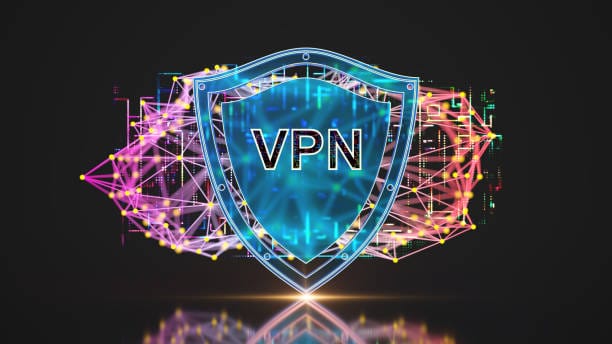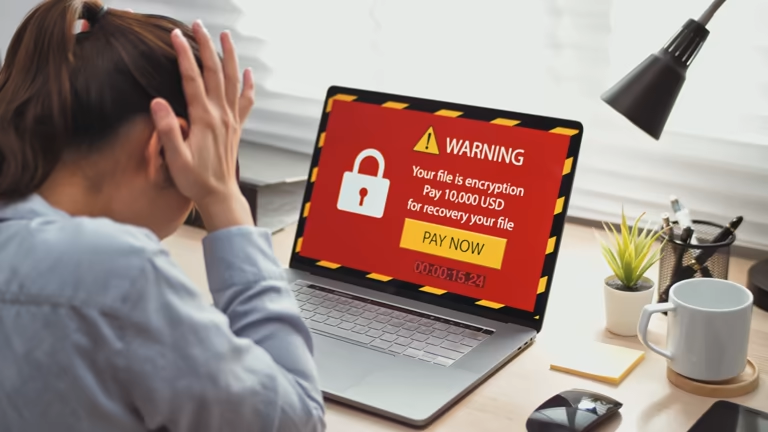You’re reading this now on a glowing screen, somewhere between the hum of your computer fan and the quiet background noise of your life. You type, click, scroll — and the information flows effortlessly. It feels private. It feels like you’re the only one peeking into this little digital world.
But you’re not alone. Every time you load a website, your device sends out a signal — a beacon in the night — that passes through your internet service provider (ISP), across dozens of network nodes, through servers, and finally to the destination. Along the way, every hop has the potential to see where you’ve been, what you’ve asked for, and sometimes, who you are.
That “someone” watching could be as harmless as your ISP keeping logs of your activity, or as unsettling as a data broker, an advertiser tracking your clicks, or even a cybercriminal intercepting your connection on public Wi-Fi.
The modern internet is built for sharing, but not necessarily for secrecy. And that’s where the story of the VPN — the Virtual Private Network — begins.
The Birth of the Virtual Private Network
In the early days of the internet, security wasn’t the first priority. The web was small, academic, and experimental. But as businesses started moving sensitive communications online, the need for privacy became urgent. Corporations wanted a way for employees to securely access company systems from home or from other offices.
That’s when the idea of the VPN emerged — a tunnel through the wild chaos of the internet, safe from prying eyes. At its simplest, a VPN is a way to take your internet traffic, wrap it in layers of encryption, and send it through a secure server before it reaches its final destination.
Think of it like mailing a letter inside a locked box. The post office still knows it’s you sending something, and it still delivers the box — but no one in between can peek at the letter inside.
At first, VPNs were mostly corporate tools, used by IT departments to protect company data. But as the internet grew and personal privacy concerns skyrocketed, they became something anyone could use.
How a VPN Works — The Tunnel in the Storm
Imagine you’re at a crowded coffee shop. You connect to their free Wi-Fi. You pull out your laptop, open your browser, and start checking your bank account. If you’re not using any encryption, that’s like standing up in the middle of the café and reading your account number out loud. Anyone with the right software can “listen in” on the network traffic.
When you use a VPN, something different happens. The moment you connect, your device establishes an encrypted connection — a tunnel — to a VPN server. Every bit of data you send goes through that tunnel first, scrambled into an unreadable form by encryption algorithms so complex it would take centuries for even powerful computers to break them.
Your ISP sees only that you’ve connected to a VPN service, but not what websites you visit or what data you exchange. The websites you visit see the VPN server’s IP address, not yours. This makes it much harder for advertisers, hackers, or even governments to build a complete picture of your online life.
In technical terms, the VPN uses protocols like OpenVPN, WireGuard, or IKEv2/IPsec to manage this encrypted tunnel. These protocols are like different types of locks and keys — some faster, some more secure, some better for certain devices.
The Many Faces of Privacy Threats
The argument for a VPN isn’t just “avoid hackers.” The reality is that our data is constantly collected, even when it’s not stolen in the traditional sense.
Your ISP may log your browsing history and sell anonymized data to advertisers. Advertisers build detailed profiles of your behavior, preferences, and habits, often linking them to your real-world identity. In some countries, governments actively monitor internet activity, blocking or punishing access to certain websites.
And then there’s the danger of public Wi-Fi — airports, hotels, cafes. A skilled cybercriminal can set up a fake network that looks legitimate, lure unsuspecting users in, and capture everything they send. Without encryption, even your login credentials and private messages can be exposed.
A VPN creates a barrier against all of these risks. It doesn’t make you invisible — nothing truly does — but it dramatically reduces the number of eyes that can follow you.
The Psychological Comfort of Digital Anonymity
There’s something almost liberating about knowing your online activity is shielded. It’s like pulling the curtains shut at night — you’re still there, still moving around, but the outside world can’t see in.
This sense of digital anonymity isn’t just about hiding from danger; it’s about reclaiming space for curiosity. You can research sensitive health questions without worrying about targeted ads following you. You can read political news without triggering censorship in restrictive countries. You can simply browse without feeling watched.
It’s a return, in a way, to the early promise of the internet — a place where information could be sought freely, without fear.
Streaming Without Borders
One of the more popular, if less lofty, uses of a VPN is to bypass geo-restrictions. Streaming services like Netflix, Hulu, or BBC iPlayer limit certain shows to specific countries. This is due to licensing agreements, but it creates a frustrating experience for users who are technically paying for the same service.
With a VPN, your traffic is routed through a server in the country of your choice. To Netflix, it looks like you’re sitting in London instead of Los Angeles, unlocking a different library of content. While this practice can be a gray area in terms of terms-of-service agreements, it highlights another power of VPNs: controlling how you appear to the internet.
VPNs in Censorship Battles
In some parts of the world, the internet is not an open commons but a walled garden controlled by governments. Websites are blocked, social media is restricted, and search results are filtered.
For activists, journalists, and everyday citizens in such environments, a VPN can be a lifeline. By encrypting their traffic and routing it through servers outside the country, they can bypass censorship and access the global internet.
Of course, in some nations, VPN use itself is restricted or monitored. The cat-and-mouse game between censorship systems and privacy tools is ongoing, with VPN providers developing stealth modes and obfuscation technologies to stay ahead.
The Myth of Total Security
It’s important to be clear: a VPN is not a magic shield. It won’t protect you from every cyber threat. If you click a malicious link or download infected software, a VPN won’t stop the damage. It can’t prevent phishing attacks or protect you if you voluntarily hand over your personal data on a website.
What it does do is close one of the most vulnerable doors — the ability for third parties to passively watch or track your online traffic.
Security experts often describe a VPN as one layer in a broader strategy. Combine it with good password hygiene, two-factor authentication, and awareness of phishing tactics, and your online defenses become far stronger.
The Technical Heart — Encryption and Protocols
The encryption used in VPNs is a marvel of mathematics. A common standard is AES-256, an algorithm so secure that, as of now, no practical method exists to break it through brute force.
When you connect to a VPN, a key exchange process occurs — essentially, your device and the VPN server agree on a shared secret key that will be used to encrypt and decrypt your data. Protocols like Diffie-Hellman or Elliptic Curve Diffie-Hellman make this possible without ever actually transmitting the key itself in the open.
From there, your data packets are wrapped in encryption, encapsulated inside a secure tunnel, and sent off. Even if someone intercepts the packets, all they see is gibberish.
This system isn’t just about keeping secrets — it’s about trust. When you choose a VPN provider, you’re essentially shifting trust away from your ISP to the VPN itself. That’s why choosing a reputable, privacy-focused provider is crucial.
The Business of Privacy
The rise of consumer VPNs has created a booming industry. Some companies genuinely focus on privacy, keeping no logs and operating in privacy-friendly jurisdictions. Others make big promises but quietly collect user data, undermining the very point of the service.
Free VPNs, in particular, should be approached with skepticism. Running a VPN service requires significant resources, and if you’re not paying with money, you may be paying with your data.
Transparency reports, independent audits, and clear privacy policies are the hallmarks of trustworthy VPN providers.
Why You Might Not Want a VPN
There’s an irony here: while VPNs are powerful tools, they’re not always necessary for every task. Using a VPN can sometimes slow your internet speed, because your data takes a longer route and is encrypted along the way. Some websites block traffic from known VPN servers.
In certain cases, a VPN might even interfere with location-based services you actually want — like local search results or regional apps.
The key is knowing when it’s worth the trade-off. If you’re sending sensitive information, using public Wi-Fi, traveling abroad, or dealing with censorship, a VPN is invaluable. For casual browsing at home on a trusted network, it may be less critical.
The Emotional Argument for Control
At the core, the reason to use a VPN comes down to control — control over who can see your activity, who can track you, and how the internet perceives you. In a digital landscape where so much of our behavior is harvested, packaged, and sold, taking even a small step to reclaim privacy can feel like an act of quiet rebellion.
You’re not hiding because you’re doing something wrong. You’re hiding because you value the dignity of being able to choose what to share.
The Future of VPNs
As the internet continues to evolve, so too will VPN technology. Already, we see integrations with browsers, operating systems, and even routers. Some companies are blending VPNs with other privacy tools like ad-blockers and anti-tracking software.
At the same time, the rise of encrypted-by-default services — from messaging apps to DNS queries — is changing the privacy landscape. In the future, VPNs may become just one piece of a broader, more seamless privacy ecosystem.
But until the day the internet is inherently private and secure — and that day is far off — the VPN remains one of the most effective and accessible tools for personal online protection.
Closing Thoughts — The Curtain Between You and the World
The internet can feel like a stage where we perform without realizing it. Every click is a line, every search a gesture, and behind the curtain, an audience of algorithms and trackers is watching.
A VPN draws that curtain shut. It doesn’t stop you from being part of the show, but it lets you decide which scenes to share and which to keep for yourself.
It’s a simple piece of software, yes. But it’s also a statement: My data is mine. My privacy matters. I choose when and how I am seen.
And in a world where visibility is currency, that choice is worth more than ever.






